在此处更改您的语言和 LGT 位置。
私人客戶的數碼平台
登錄 LGT SmartBanking
金融中介機構的數碼平台
登錄 LGT SmartBanking Pro
解答常見問題 (FAQ)
LGT SmartBanking 幫助
解答常見問題 (FAQ)
LGT SmartBanking Pro 幫助
The NGO Lively Minds empowers children and families in Uganda and Ghana to improve their education, health and quality of life.
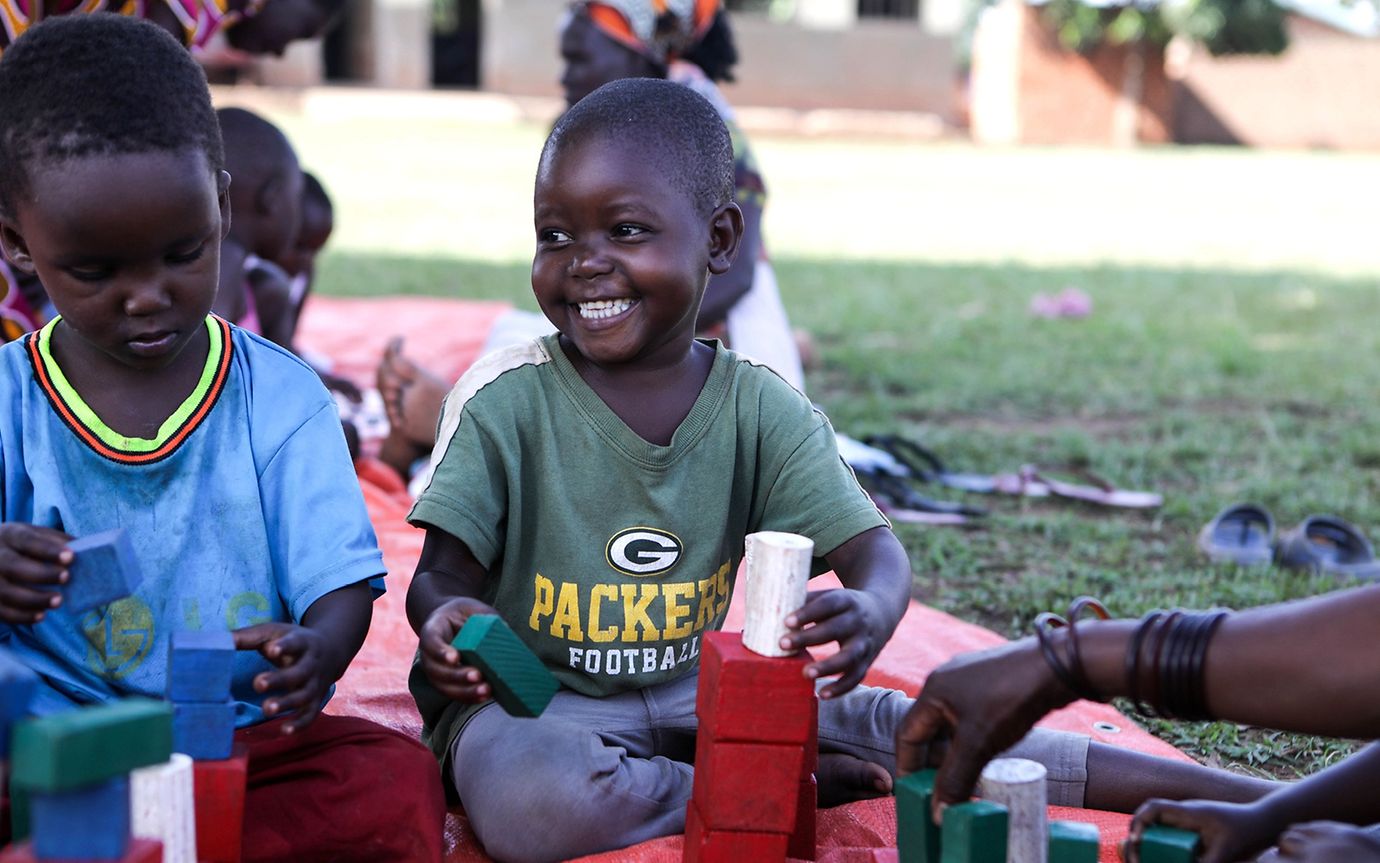
Two-year-old Fatuma cranes her neck in anticipation as she watches the large plastic box being opened. Little by little, building blocks and books emerge. Fatuma knows what’s coming next: every Friday at 3 pm, the playgroup meets under the large mango tree at the primary school in Buwaiswa, Uganda, to play. And learn.
The playgroup is organised by the UK-based NGO Lively Minds, one of the organisations supported by LGT Venture Philanthropy. “Our aim is to prepare children for primary school – but we also want to teach parents how they can support their children’s development”, explains John Kamwaka Twesigye, Uganda Country Director at Lively Minds. With its “learning through play” concept, Lively Minds takes a holistic approach to learning. The programme targets children aged three to six as well as their families.
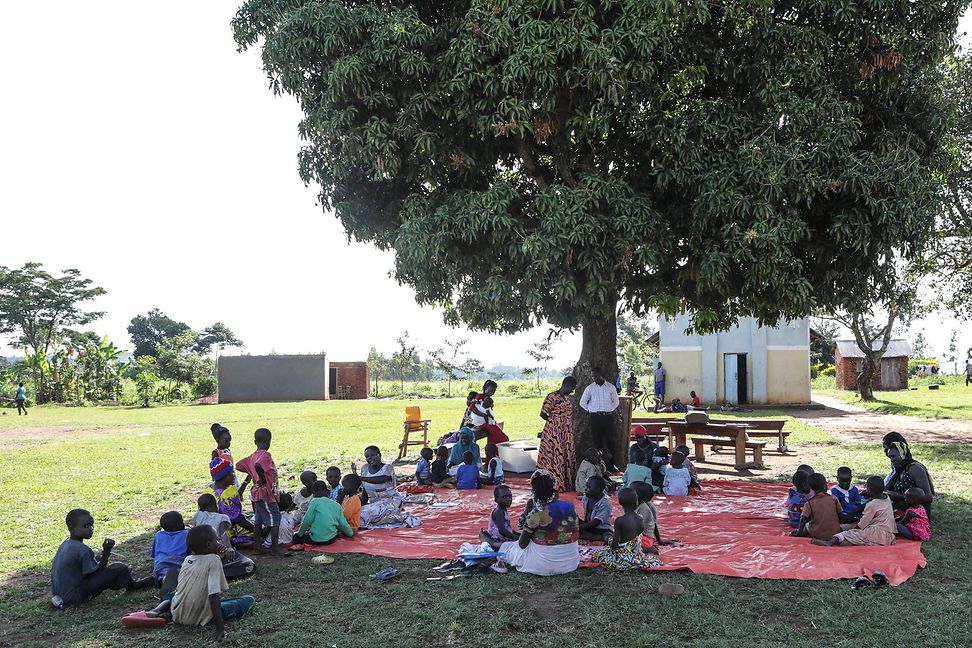
There are, however, always a few children below or above that age, like the two-year-old Fatuma. Her mother is a teacher and was very interested in taking part in the programme, explains Lovisa Namusuubo, a member of a volunteer network that collaborates with Lively Minds.
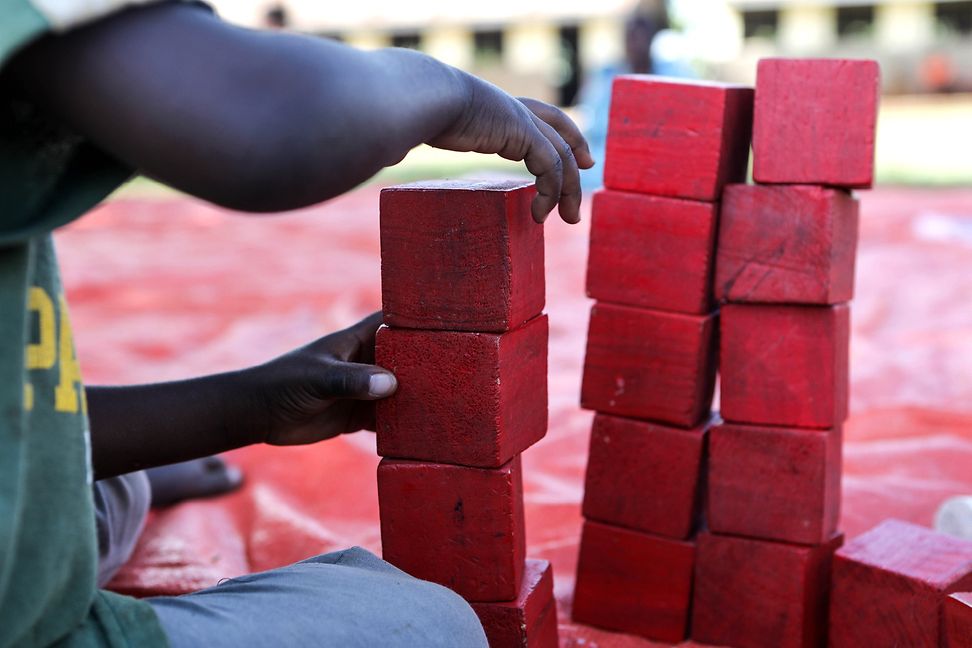
In addition to volunteering at the afternoon playgroup, Namusuubo helps the people in her village address any health-related questions, such as: How can I make my diet healthier? What’s causing the pustules on my skin? What do I do if my child has a stomachache? These local volunteer health workers help ensure their community receives direct, straightforward and long-term support.
Lively Minds conducts programmes like this one in Buwaiswa in a total of around 408 villages. Each programme attracts approximately 40 mothers and 50 children. Namusuubo explains that the children’s grandmothers often also participate. “It’s not unusual for grandparents to take on parenting duties”, says the 66-year-old. This generally happens in cases where a child’s parents are absent, perhaps because they work in a different village, or because they are ill or have passed away. Today, a few grandmothers can be seen standing among the young mothers.
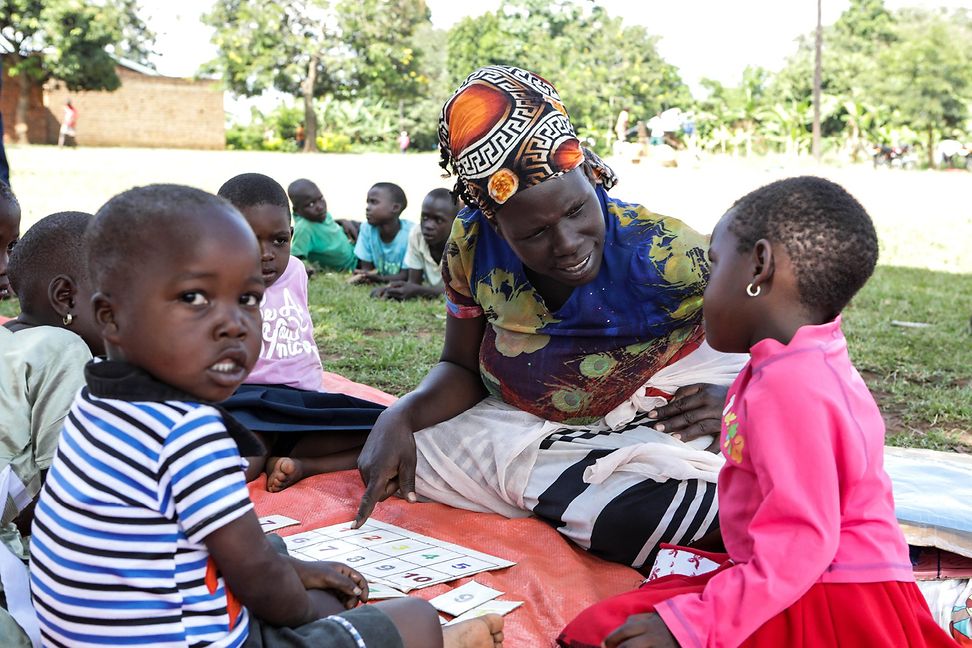
“What motivates me is seeing that children in our playgroup have learnt something useful and are better equipped to handle the subjects covered in primary school. That and the friendships that form between the children and the adults”, says Namusuubo, who has raised eight children of her own. “I also see a change in the mothers”, she continues. “Many of them are very young and only went to school for a short time. So I see how proud they are when they start to take on responsibility and teach the children in the playgroup. It boosts their self-confidence.”
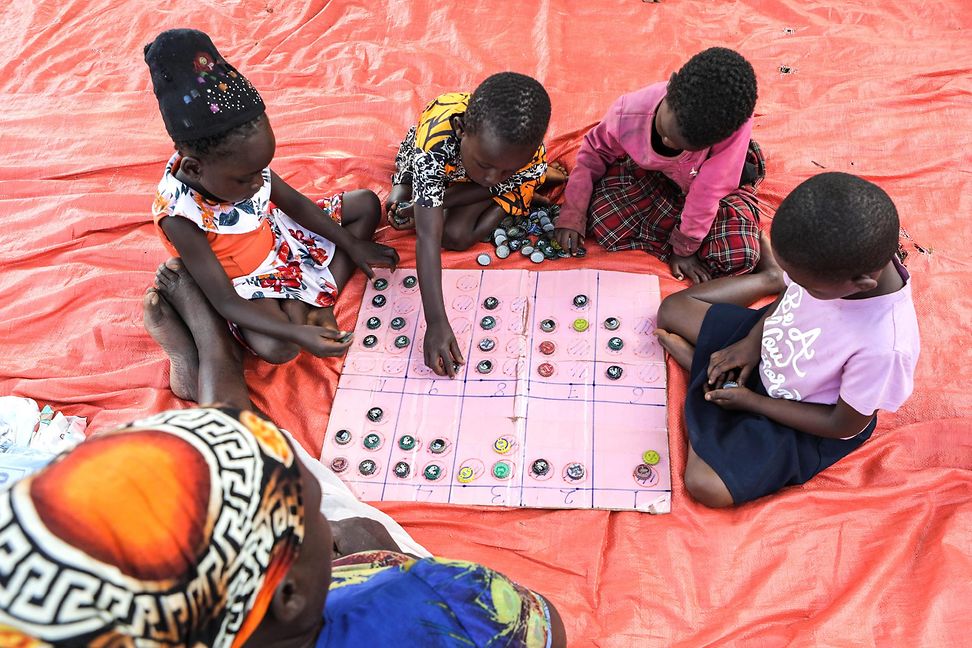
Namusuubo’s observations are corroborated by a control study conducted by the Institute for Fiscal Studies and Innovations for Poverty Action. An analysis of the Lively Minds early childhood education programme in Ghana showed that its impact was equivalent to that of an entire additional school year. According to the study, the children’s reading, writing and arithmetic skills improved, acute malnutrition was reduced among the participating children and destructive behaviour such as bullying decreased. Also, the time that mothers spent with their children increased and parenting practices became more child orientated.
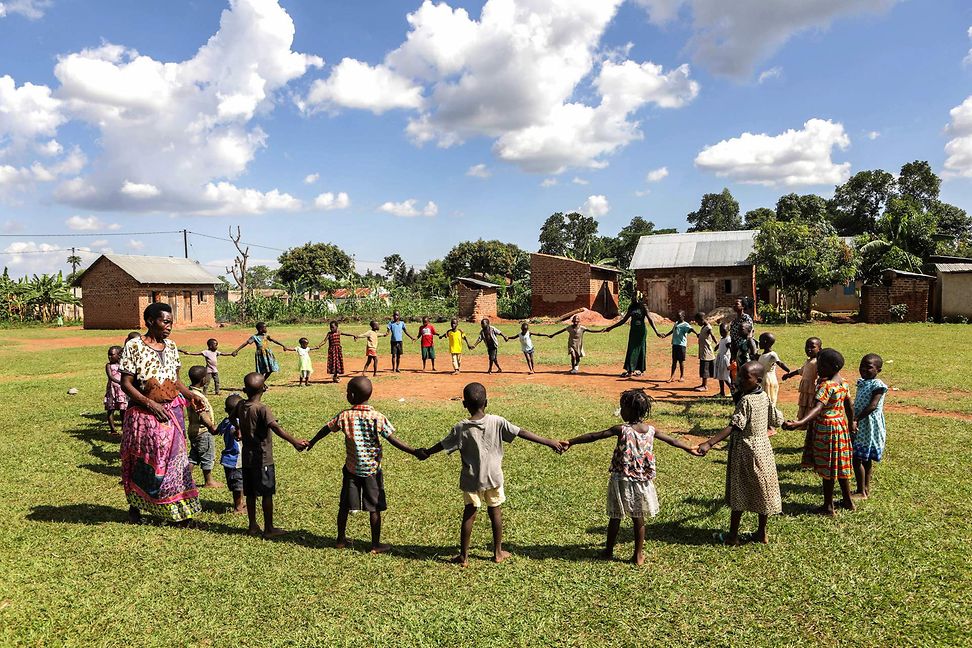
Lovisa Namusuubo doesn’t have much time to talk this afternoon, as the 50 or so children and ten adults require her full attention. Also, the women have housework to do afterwards, so she is conscious of the fact that she should not be wasting any time.
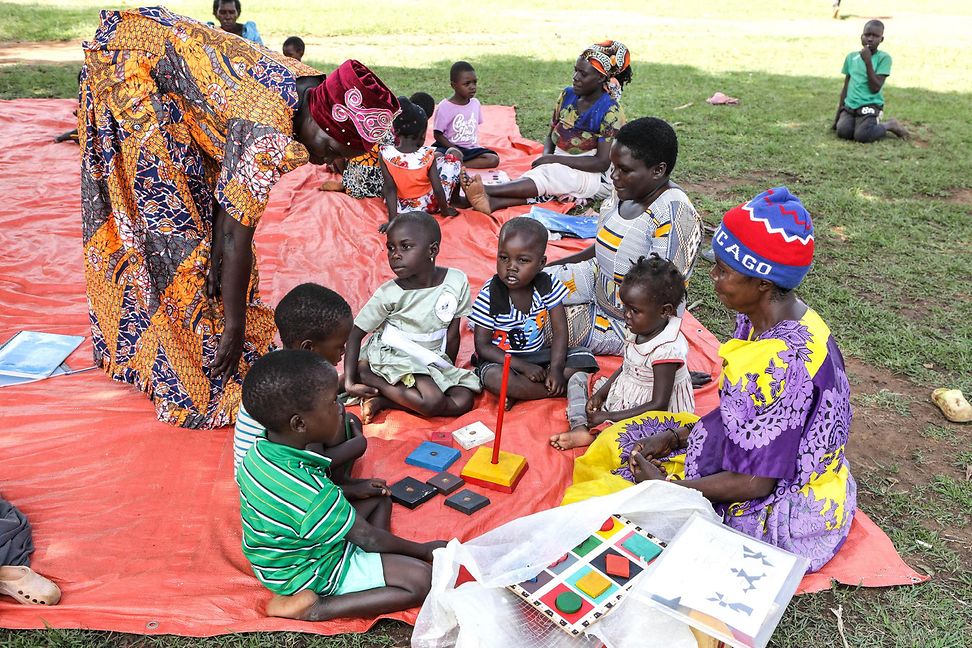
But she does take a moment to explain that every playgroup is given a starter pack of games. Each pack consists of individual building blocks that have been selected because they can be easily replicated and replaced. Lively Minds’ motto for the games is: sustainability, accessibility and durability. But the programme doesn’t just focus on toys and learning through playing. It also offers educational workshops for parents, where they learn about important topics such as malaria prevention, nutrition and a man’s role in raising children.
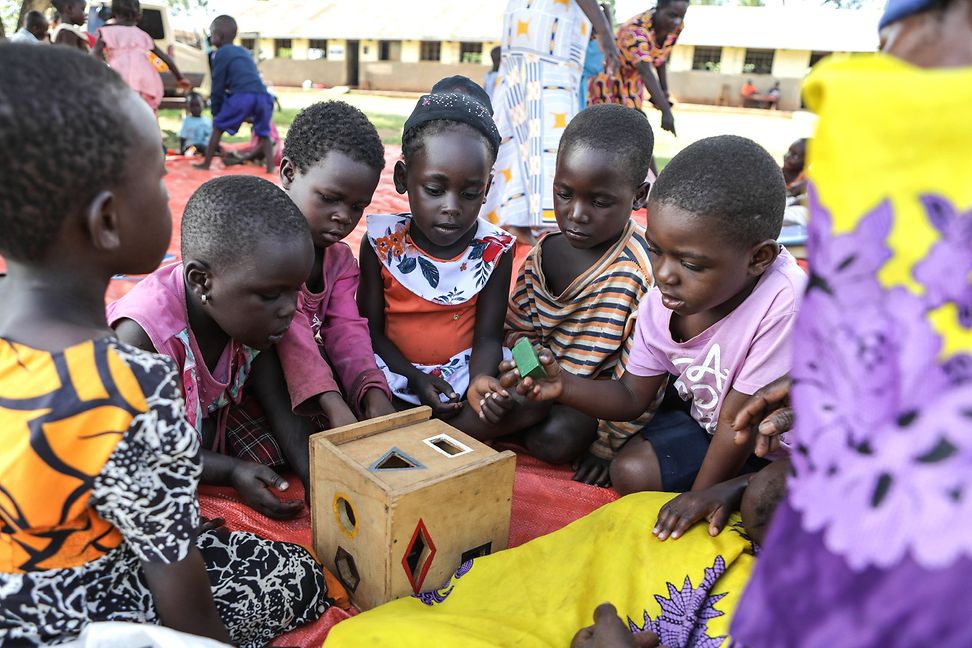

While Europe has seen a big surge in early childhood education in recent years, the concept has stagnated in the Global South – primarily due to a lack of suitable programmes. “This means that children here are more at risk of not reaching their development potential”, says John Kamwaka Twesigye.
In 2022, a study was published in the US that examined the impact of poverty on early childhood development. The study found that in financially better-off families, even young children showed higher brain activity. Possible explanations included better quality food, better healthcare, lower stress levels and parents spending more time with their children instead of working. These are all factors that fundamentally influence physical and cognitive development. However, they are not the reality for many families living in rural Uganda.
“In Uganda, there is very little state support for primary school education, which is why there are so many private schools. But many parents can’t afford the fees, so their children end up staying at home”, says Twesigye. Early childhood education provided by daycares, kindergartens and preschools is even less accessible, he explains. Which is unfortunate, as Twesigye has seen the various benefits of this kind of education. For example, he has seen that children who take part in the afternoon playgroups have less difficulty keeping up at school later on, and that they tend to be well behaved and socially competent, and communicate well.
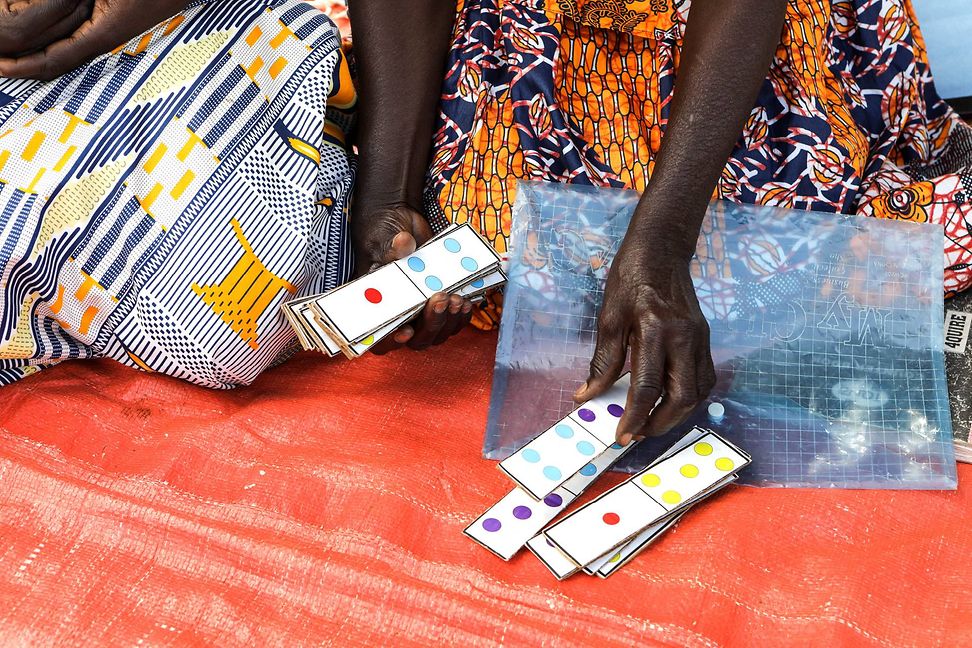
Lively Minds focuses its efforts on rural communities with weak infrastructure, like Buwaiswa. Buwaiswa is only a few hours’ drive from Jinja, one of Uganda’s tourist strongholds that attracts people from around the world and is famous for white water rafting and bungee jumping. But Jinja and Buwaiswa, which has an estimated population of just 1500, are worlds apart.
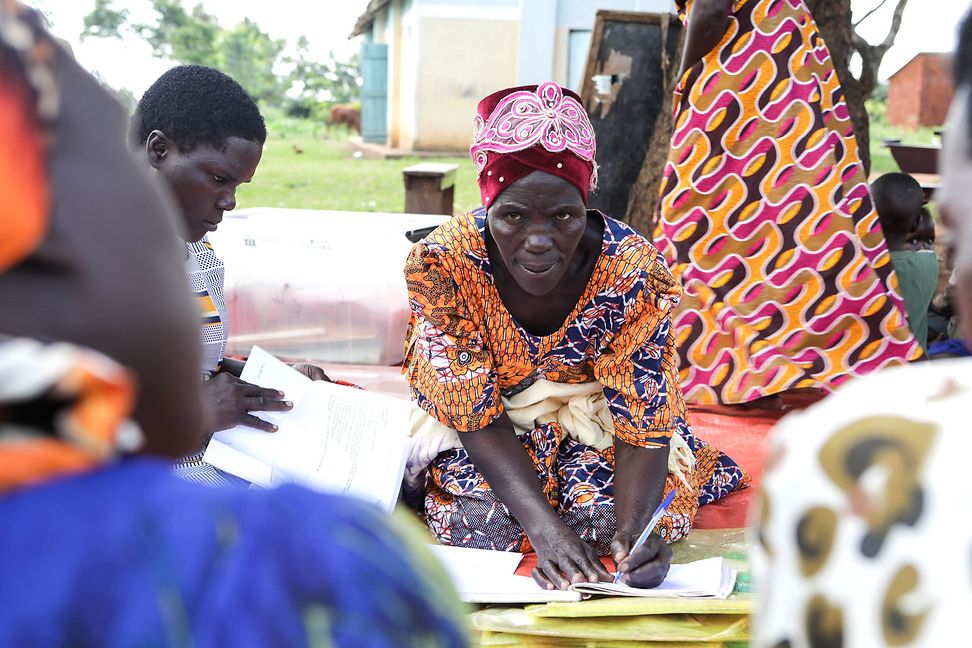
Uganda’s economic growth rate is above the average for sub-Saharan Africa. However, it is not strong enough to alleviate the poverty of the nation’s rapidly growing population. And while the Western Region, which borders on the Democratic Republic of Congo, has been receiving increased international attention since oil was discovered there, the east gets very little attention. The Busoga region is especially poor, says Twesigye. “Academic performance as well as school dropout and teenage pregnancy rates, all of which reflect education levels, are very high in Busoga.”
Twesigye explains that Lively Minds is specifically tailored to the needs of rural populations. In addition to local activities, it also has a radio show that raises awareness of child education. “We work together with local government structures and broadcast a weekly programme. This helps us cover more territory and reach people who can’t read”, says Twesigye.
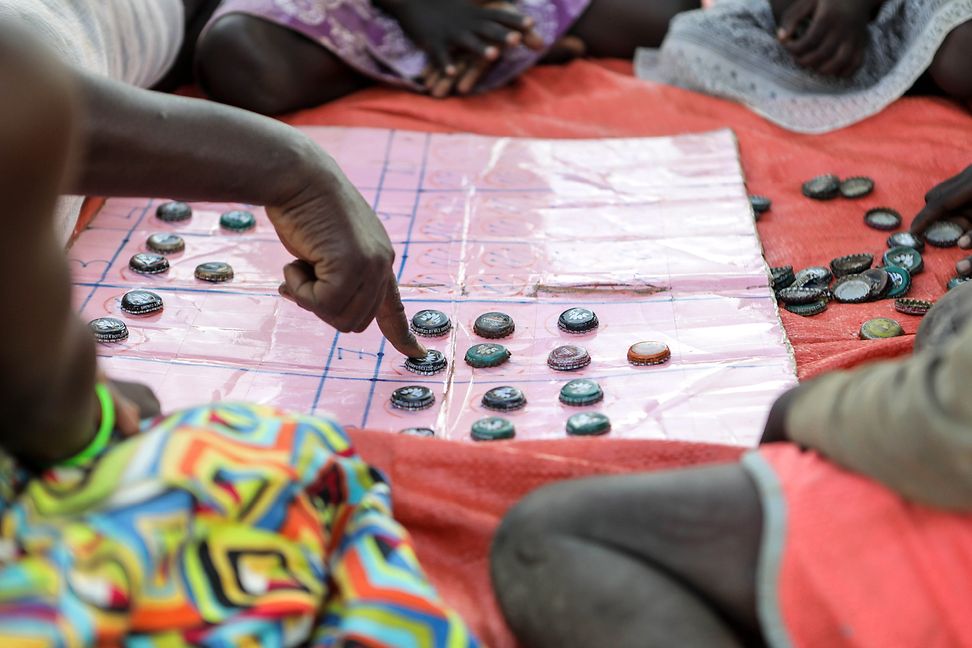
Jamira Namuzga joined the afternoon programme to give her child a better education, and to learn new things. She has dressed up for this afternoon’s playgroup and is wearing a floor-length dress. While this may not be very practical, it doesn’t stop the 19-year-old from giving her all as she plays tag and other outdoor games.
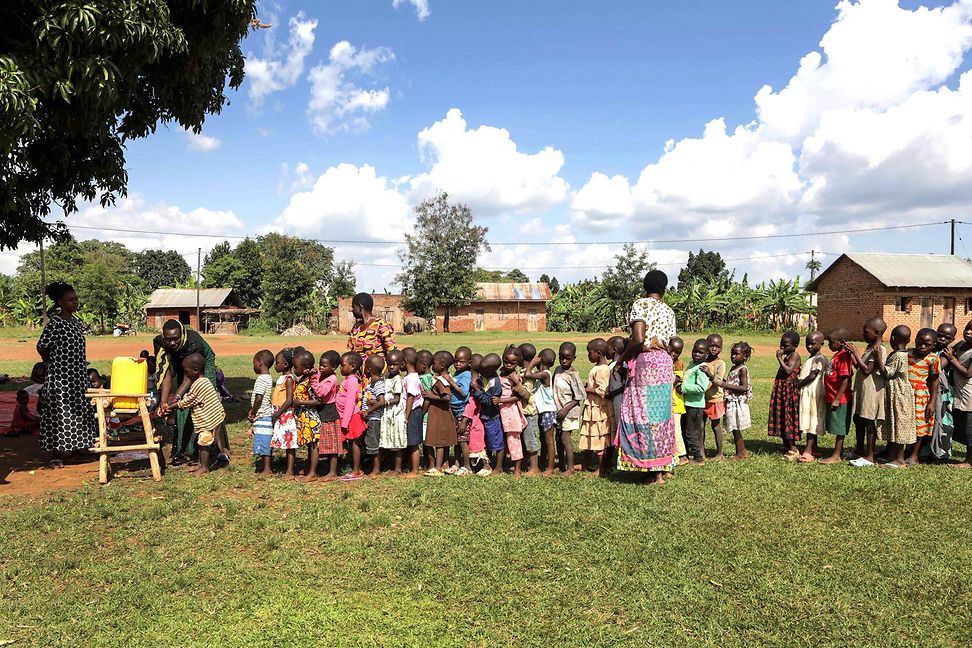
“One of the things we see in our work is that malnutrition doesn’t just affect children’s physical growth, it also impacts their social development. Children need to be socially and emotionally active. They need to be able to express themselves and share ideas”, says John Kamwaka Twesigye.
Which is why on this Friday afternoon, various games are being taken out of the big plastic box and placed on an orange tarpaulin under the mango tree. They include Memory, books to be read out loud, a number-matching game and various geometric shapes made out of wood. “In order to give all of these children the best-possible learning experience, we divide them into two groups. One group starts with indoor games while the other plays outdoor games – and after an hour, they switch”, explains Namusuubo.
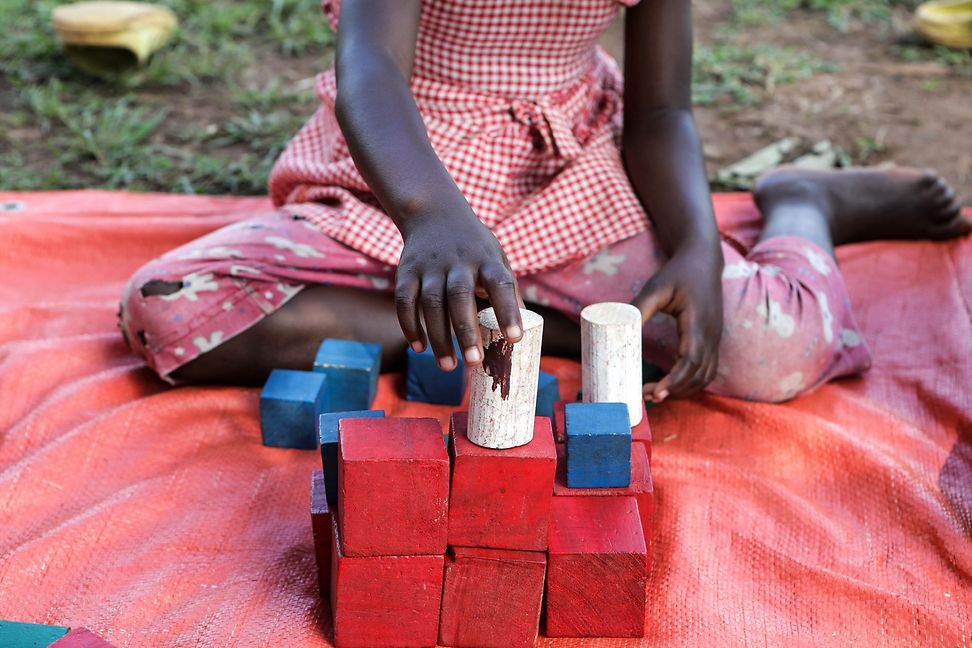
In addition to being fun, the games help the children improve their reading, writing and maths skills. But the playgroup is also an opportunity to spend time together and engage with the children. It is a two-hour window during which no one needs to think about the work to be done in the fields or at home; two hours spent in a world full of stories and colourful shapes.
Before the playgroup starts, the adults briefly sit down together. “Are there any rules for any of the games that you’d like to go over again?” asks Lovisa Namusuubo. One participant has a few questions about dominoes. So the women play a quick round while Namusuubo explains what they need to keep in mind. Then the group lines up to wash their hands – because Lively Minds also wants to help improve hygiene and educate people about pathogens.
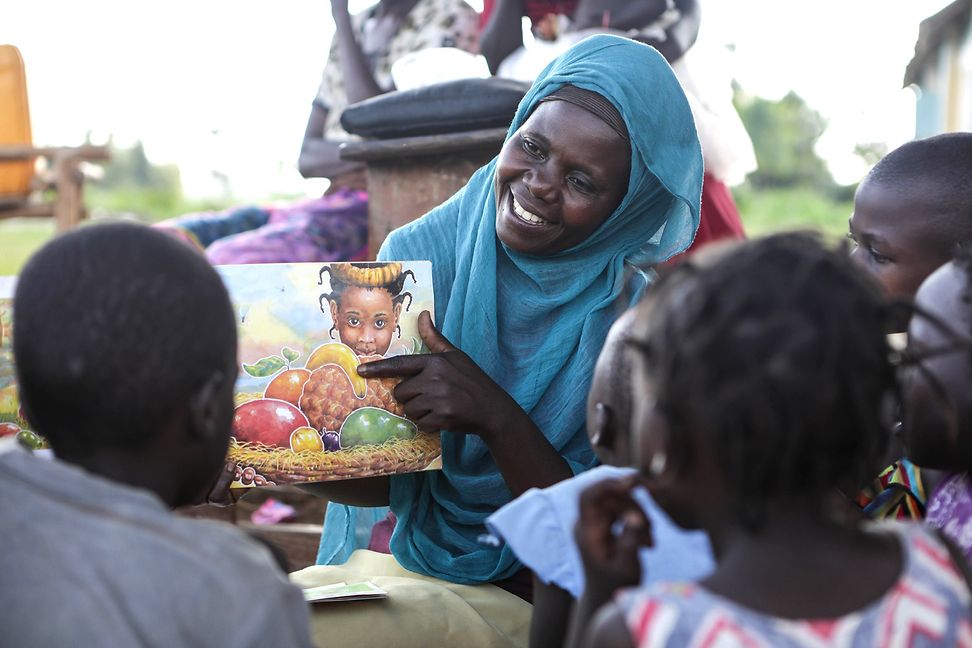
“It’s often the small things that have a big impact. Take handwashing, for example. Soap is too expensive for some families. But what many people don’t realise is that you can make soap at home using ash”, explains Twesigye. Every household produces ash when cooking their food over a fire – which means it is readily available. Lively Minds strives to offer people realistic, everyday solutions and alternatives.
Another example is food. “Many households have chickens and sell the eggs they produce. But giving your child an extra egg a week can make a difference. We’re trying to encourage small, realistic changes like these”, explains the Lively Minds’ Uganda Country Director. The first few years of a child’s life are very important for their development. “So when we talk about early childhood care and education, we’re talking about the entire package, everything a child needs in order to develop well.”
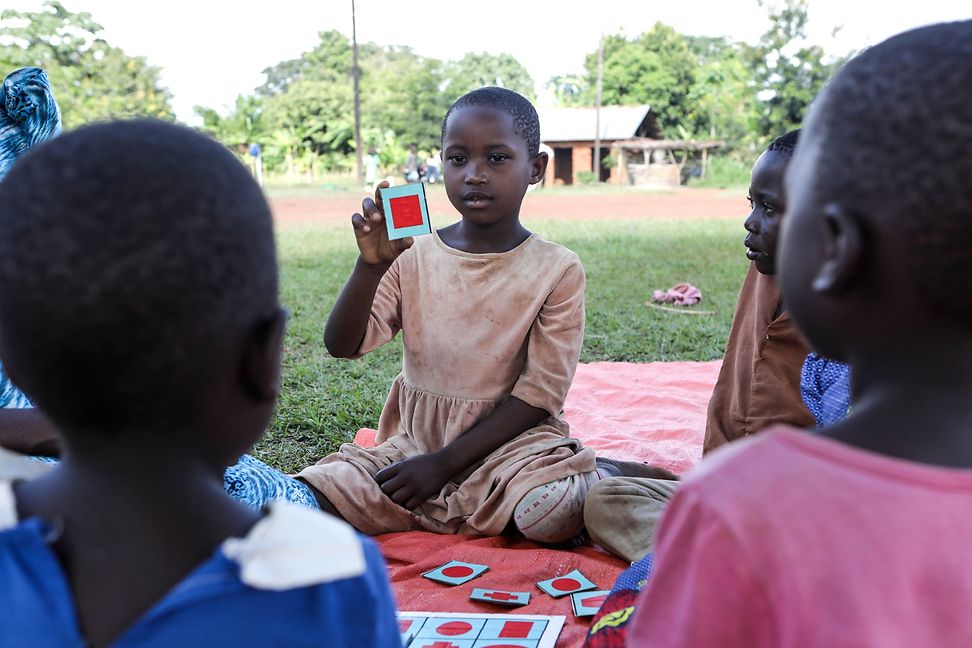
Which is why the afternoon playgroup is broken down into both running games and indoor games. Jamira Namuzga explains that the running games are her favourite part of the playgroup. She especially enjoys playing “Mr Lion”, a game of tag that involves a “lion” who chases the children and inevitably gives rise to a lot of screaming and whooping. The mood is exuberant, both among the children and the adults. Jamira Namuzga is laughing happily; for a brief moment, the young mother has forgotten her shyness.
Time tends to pass far too quickly during the afternoon playgroups – and today is no exception. All too soon, the building blocks, books and games disappear back into the large plastic box, one by one. Jamira Namuzga slowly sets off towards the village. She has to prepare dinner and do her chores – after two hours of play, it’s time to return to work. Fatuma takes a last look over her shoulder to say goodbye to the mango tree. “See you next week”, she says, and then waddles after her mother.
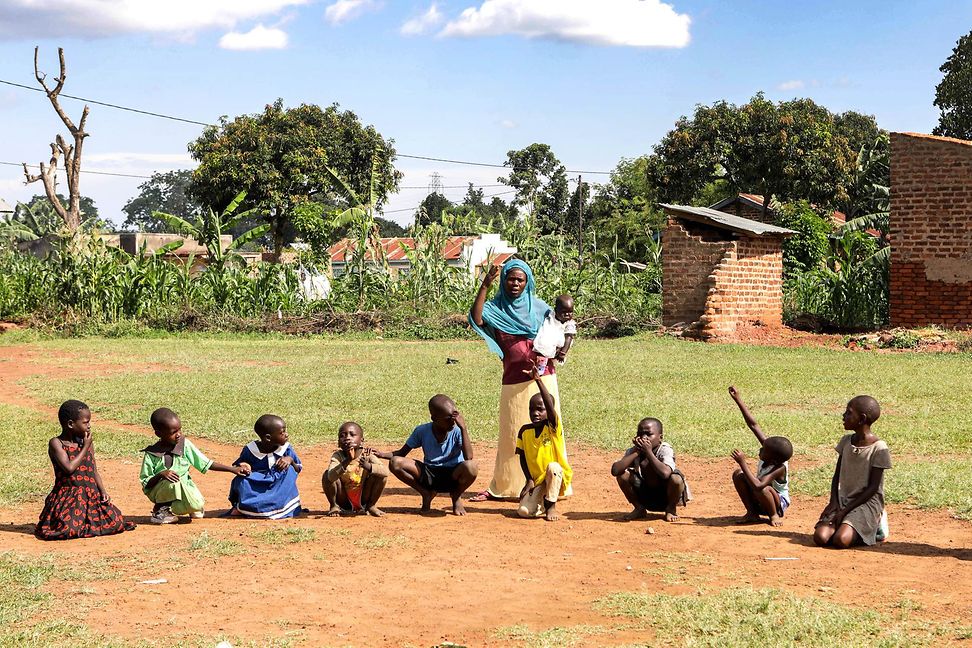
LGT Venture Philanthropy (LGT VP) is an independent charitable foundation striving to improve the quality of life of disadvantaged people, contribute to healthy ecosystems, and build resilient, inclusive, and prosperous communities.
LGT VP deploys philanthropic capital to organizations with effective, innovative, and scalable solutions to social and environmental challenges, thus directly contributing to the Sustainable Development Goals.
The foundation primarily supports organizations based in emerging markets, focusing on high-impact sectors, including education, health, and environment. LGT VP is the venture philanthropy arm of LGT Group. They are also happy to forward donations to the respective organizations.